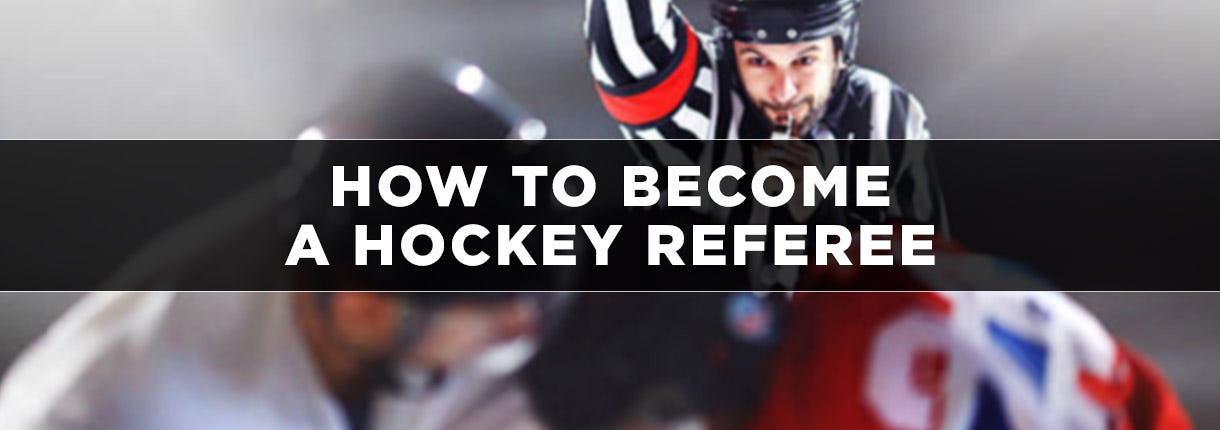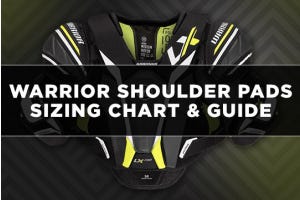How to Become a Hockey Referee

Hockey referees play a critical role in promoting fair play, sportsmanship, and enforcing the rules of the game. Their presence ensures the integrity of the sport, making sure games are conducted in a safe and orderly manner. This guide will walk you through the steps to become a hockey referee, from qualifications and training to career development and potential earnings.
In this article, we will disucss:
- Hockey Referee Qualifications and Prerequisites
- Enrolling in Officiating Clinics and Training Programs
- Levels of Officiating and Career Development Opportunities
- Tips for Honing Officiating Skills
- How Much Do Hockey Refs Make?
- Professionalism, Integrity, and Ongoing Education
- How To Become a Hockey Referee - Frequently Asked Questions
How To Become a Hockey Referee: A Step-by-Step Guide
Hockey referees play a critical role in promoting fair play, sportsmanship, and enforcing the rules of the game. Their presence ensures the integrity of the sport, making sure games are conducted in a safe and orderly manner. This guide will walk you through the steps to become a hockey referee, from qualifications and training to career development and potential earnings.
Hockey Referee Qualifications and Prerequisites
To become a hockey referee, you need to meet specific qualifications and prerequisites:
- Age Requirements: Most officiating programs require you to be at least 14 years old.
- Knowledge of the Game: A strong understanding of hockey rules and gameplay is essential. Watching games, reading rulebooks, and attending hockey games can help build this knowledge.
- Physical Fitness: Referees need to be physically fit to keep up with the fast pace of the game. Regular exercise and conditioning are recommended.
Enrolling in Officiating Clinics and Training Programs
Enrolling in officiating clinics is a crucial step in becoming a hockey referee. Here are the steps to find and enroll in these programs:
- Research Governing Bodies: Look for programs offered by organizations like USA Hockey or Hockey Canada.
- Registration: Follow the registration steps on their websites.
- Attend Clinics: Participate in local or regional clinics to gain practical experience and certification.
Clinic Name
- USA Hockey Officiating Program
- Hockey Canada Officiating Program
- Local Officiating Clinics
Location
- Nationwide
- nationwide
- varies by region
Certification Offered
- Level 1-4 Certification
- Level 1-6 Certification
- Basic to Advanced Certification
Levels of Officiating and Career Development Opportunities
The officiating career path in hockey includes several levels, each with its own requirements and opportunities:
- Youth Leagues: Entry-level officiating for local youth hockey games.
- Amateur Leagues: Intermediate level, including high school and recreational leagues.
- Junior and Collegiate Leagues: Advanced level, including junior hockey leagues and college games.
- Professional and International Leagues: Highest level, including minor leagues, NHL, and international competitions.
Career development opportunities are abundant. To advance, referees should continuously improve their skills, gain experience, and network within the hockey community.
Tips for Honing Officiating Skills
Improving your officiating skills is essential for career advancement. Here are some practical tips:
- Positioning: Always maintain a good position on the ice to make accurate calls.
- Communication: Clearly communicate with players, coaches, and fellow officials.
- Decision-Making: Make quick and confident decisions during the game.
- Understanding Game Psychology: Learn to read the game and anticipate plays.
Regular practice, seeking mentorship, and accepting constructive feedback are crucial for skill development.
How Much Do Hockey Refs Make?
Earnings for hockey referees vary based on the level of play:
- Youth Leagues: Typically earn between $25-$50 per game.
- Amateur Leagues: Can make $50-$100 per game.
- Junior and Collegiate Leagues: Referees can earn $100-$200 per game.
- Professional Leagues: Earnings can range from $200 per game in minor leagues to over $1,500 per game in the NHL.
Several factors influence pay, including experience, certification level, and the game's location.
Professionalism, Integrity, and Ongoing Education
To excel as a hockey referee, maintaining high standards of professionalism and integrity is essential. Continuous education, such as attending advanced clinics and staying updated on rule changes, helps referees improve and contribute positively to the sport.
How To Become a Hockey Referee - Frequently Asked Questions
How do I find officiating clinics near me?
Check the websites of USA Hockey, Hockey Canada, and local hockey associations for upcoming clinics in your area.
What equipment do I need to start refereeing hockey games?
You will need a referee jersey, pants, skates, a whistle, and protective gear such as a helmet and shin guards.
How can I get assigned to higher-level games?
Gain experience by officiating lower-level games, seek mentorship from senior referees, and consistently demonstrate professionalism and skill.
What are the biggest challenges hockey referees face?
Common challenges include managing player and coach behavior, making split-second decisions, and maintaining physical fitness.
How can I balance my day job with refereeing?
Create a flexible schedule, prioritize time management, and communicate your availability clearly with your officiating assigner. Becoming a hockey referee is a rewarding path that offers opportunities for growth and development in the sport. By following these steps and dedicating yourself to continuous improvement, you can succeed as an official and make a significant impact on the game.









Login and Registration Form
or
Create an account